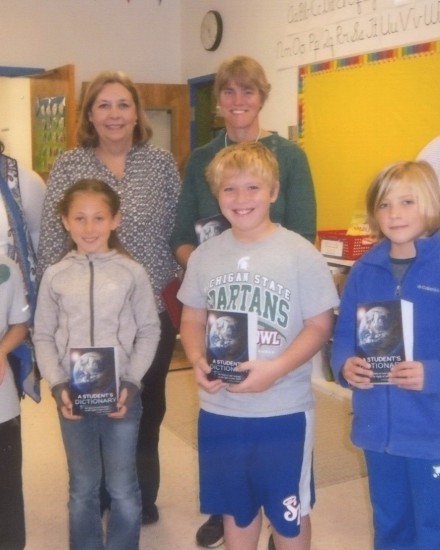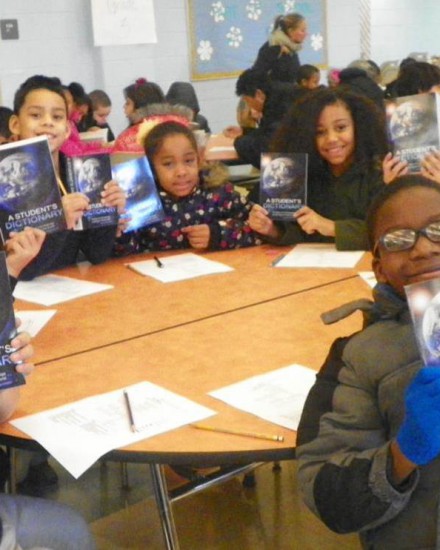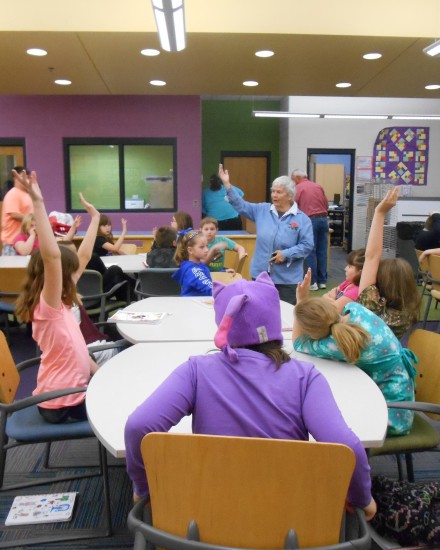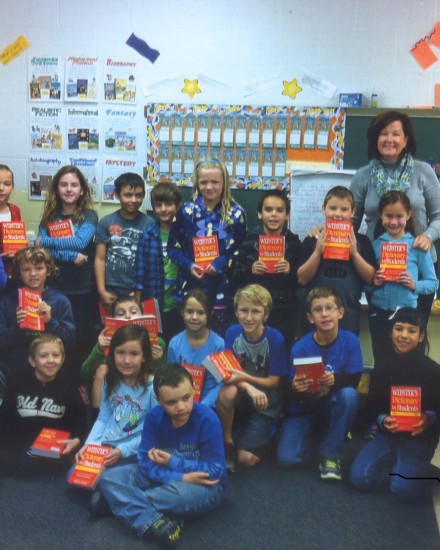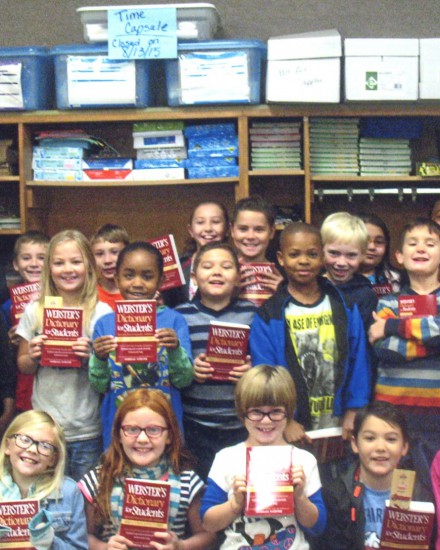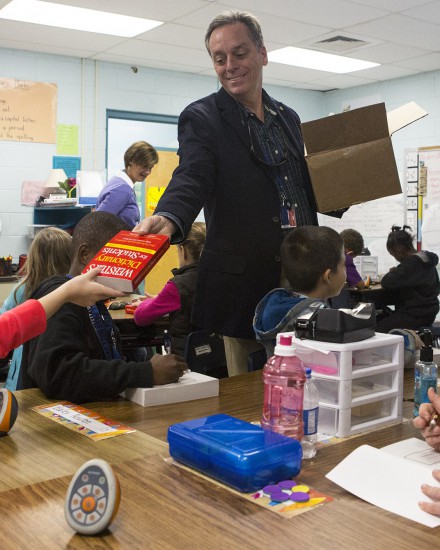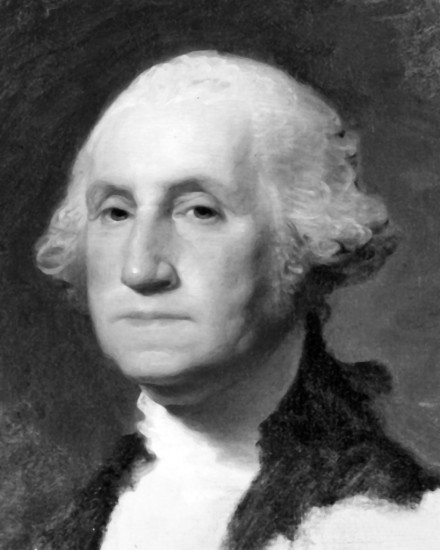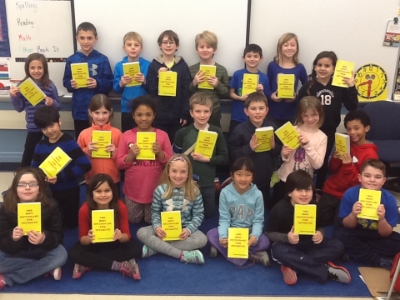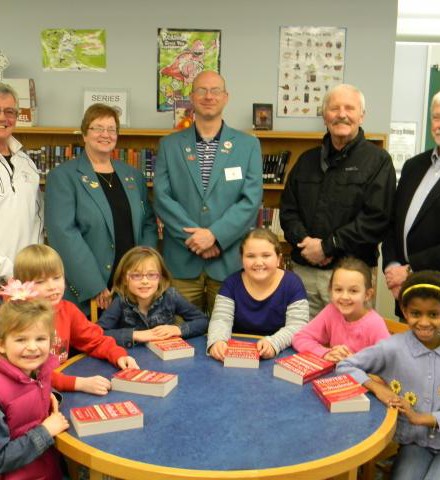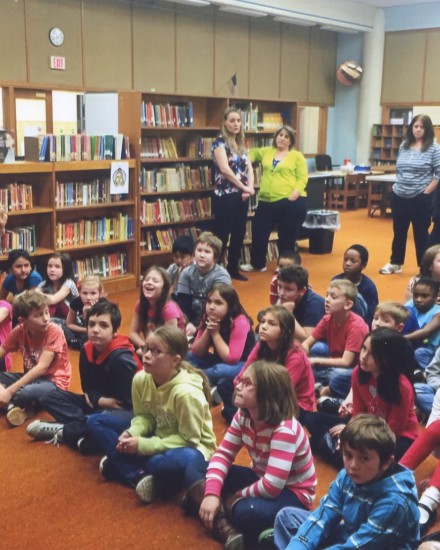Maine Grange Values a Paperback Dictionary as a Modern Teaching Tool
With the popularity of computer technology, users have become accustomed to Spell-check and autocorrect. Although these features are convenient for adults, they fail to teach young students how to identify and spell words correctly on their own. Fortunately for the children of Androscoggin County, the West Minot Grange #42 provides paperback dictionaries to third graders at Minot Consolidated School. Since 2004, members have donated... Read More
Presentation Ideas from New Jersey: Create a Crossword Puzzle
Over the last eight years, the Rotary Club of Elizabeth, NJ has provided approximately 20,000 dictionaries to third grade students in the cities of Elizabeth and Hillside. This year, a new club member came up with an interactive worksheet to aid in their dictionary presentation. A crossword puzzle was generated which incorporated several environmental STEM vocabulary words. The activity gave the students the opportunity... Read More
Massachusetts Rotarian Shares More than Just the Gift of Words
The Rotary Club of North Andover has participated in The Dictionary Project since 2008. Spearheading their program is a spunky retired teacher of 35 years, Barbara McGovern. This past fall McGovern wanted to expand her outreach beyond the traditional dictionary project she does in North Andover. After reading an article about the economic hardship in McDowell County, West Virginia, McGovern decided to coordinate a... Read More
New York Grange Continues The Dictionary Project Tradition
Thanks to the members of the Greenfield Grange #807, receiving a dictionary has become a rite of passage for the third graders in Saratoga County. For over ten years, Greenfield Grangers have collaborated with The Dictionary Project to promote education in their community. This year, Project Coordinator Dorothy Rowland and fellow members of the Greenfield Grange visited Greenfield Elementary School to give every third... Read More
How a Paperback Dictionary Promotes Sharing
Sponsors: When sponsors take the time to visit each classroom and present the dictionaries to the children, they have the opportunity to share with students the importance of learning dictionary skills, like spelling, grammar and parts of speech. These skills allow students to expand their vocabulary by forming new associations with unfamiliar words. Giving a personal dictionary also shows children that there are individuals... Read More
Word of the Day: Window
win·dow /ˈwindō/, noun: 1. an opening in a wall, door, etc., that usually contains a sheet of glass “People ask me what I do in winter when there’s no baseball. I’ll tell you what I do. I stare out the window and wait for spring.” Rogers Hornsby, 1896 – 1963 2. a means of entrance or access “Better keep yourself clean and bright; you... Read More
Word of the Day: Discipline
dis·ci·pline /ˈdisəplən/ noun: 1. control that is gained by requiring that rules or orders be obeyed and punishing bad behavior “Discipline is the soul of an army. It makes small numbers formidable; procures success to the weak, and esteem to all.” George Washington, February 22, 1732 – 1799 “There is no magic wand that can resolve our problems. The solution rests with our work... Read More
Word of the Day: Summit
sum·mit /ˈsəmət/, noun: 1. the highest point of a mountain or hill “It is very lonesome at the summit! Like a man’s life, when he has climbed to eminence.” Nathaniel Hawthorne, 1804 – 1864 “Soldiers, think of it, from the summit of these pyramids, forty centuries look down upon you.” Napoléon Bonaparte, 1769 – 1821 2. a meeting between heads of government “It is... Read More
Word of the Day: Posture
pos·ture /ˈpäsCHər/ noun: 1. the way in which your body is positioned when you are sitting or standing “A good stance and posture reflect a proper state of mind.” Morihei Ueshiba, 1883 – 1969 “There are thoughts which are prayers. There are moments when, whatever the posture of the body, the soul is on its knees.” Victor Hugo, 1802 – 1885 2. having a... Read More
Word of the Day: Polar
po·lar/ˈpōlər/, adjective: 1. relating to a geographic or magnetic pole “He who exercises government by means of his virtue may be compared to the north polar star, which keeps its place and all the stars turn towards it.” Confucius, 551 BCE – 479 BCE “Polar coordinates aren’t just arctic fashions.” Anonymous graffiti 2. at opposite ends; completely different “Love and hate, despite their polar... Read More

